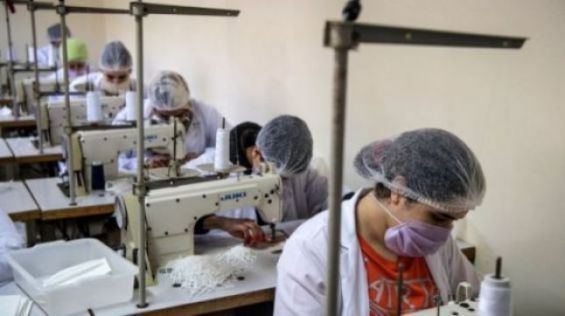The African Development Bank (AfDB) released its report on economic prospects in the North African region on Tuesday, focusing on the economies of the five Maghreb countries, in addition to Egypt.
The report recalls that projections prior to the spread of the coronavirus pandemic on a global scale predicted a 4.4% to 4.5% economic growth in North Africa in 2020 and 2021, respectively. However, the uncertainty that came along the global health crisis has had a negative impact on growth forecasts in this region.
«In Africa, the North Africa region recorded the highest number of confirmed Covid-19 cases in May 2020. The most recent projections for 2020 show a 5.2 percent loss in growth in the region», the financial institution reported.
Thus, «this would have the growth rate of 4.4% fall by -0.8% if the pandemic were to last until June 2020 (best case scenario)», the bank predicts. On the other hand, «a 6.7 points loss could make the growth rate fall by -2.3% if the pandemic were to last until December 2020 (pessimistic scenario)», it added.
Tourism, trade and youth unemployment in North Africa
The authors of the report have focused on several economic sectors in the six countries of the region. To them «the service sector is hit hard by the Covid-19 outbreak due to travel bans, containment measures, transportation disruption and the closure of hotels and restaurants, as well as other entertainment venues». «The coronavirus pandemic will cause a decline in tourist arrivals from East Asia and Europe, which will mostly affect Egypt, Morocco and Tunisia. It will have a huge impact in terms of jobs in hotels, restaurants, airline companies and local activities», the bank revealed.
Recalling that the disruptions in global supply chains caused by Covid-19 are expected to continue until July 2020, AfDB referred to the impact on certain sectors in North Africa. «In a pessimistic scenario, world economic demand is expected to fall by 7.9% (7.8% in the euro zone), which will weaken international trade and investment and slowdown the manufacturing sector in North Africa, which mainly meets European demand for manufactured products», it explains.
According to the same source, North Africa recorded in the first quarter of 2019 a growth rate of 1.8%, compared to 2.5% in the fourth quarter of 2018. Moroccan manufacturing production increased during the first quarter of 2019 at a rate of 3.1%.
The bank believes that youth unemployment is one of the main challenges facing the six countries of the region. «In Mauritania and Morocco, the youth unemployment rate is at 15.2% and 19.4% respectively, but it is above 25% in all other countries and even reaches 34.7% in Tunisia», it continued.
debt and rising inequalities
The report focuses on Morocco's budget and trade deficit. Thus, the Kingdom's budget deficit for 2019 was 3.6% of GDP (0.2 percentage points down compared to 2018) while the ratio of budgetary expenditure to GDP has fallen by 1% since 2019.
Moroccan public debt, for its part, increased from 47% of GDP in 2009 to 64.9% of GDP in 2019. An ambitious infrastructure investment program and multi-sectoral plans explain this increase while the authorities aim to gradually reduce public debt to 60% of GDP by 2024 by strengthening growth and stabilizing public finances.
The AfDB thus estimates that the refinancing risk is limited in the Moroccan context, since 89% of the debt has an average maturity of 6 years and 5 months, and the maturity of the external debt is even longer, i.e. 7 years and 10 months. 55% of the external debt is due to multilateral creditors.
The document, however, highlights «the growing indebtedness of Moroccan state enterprises». «The debt of state enterprises has reached a ceiling in Morocco. It now presents a budgetary risk», it warned.
The report also highlights «high» inequalities in the Kingdom. «Certainly, Morocco has experienced a net reduction in poverty, but the country has recorded an increase in social inequalities, and millions of Moroccans considered to be economically vulnerable are likely to fall into poverty», the AfDB concludes.




 chargement...
chargement...












